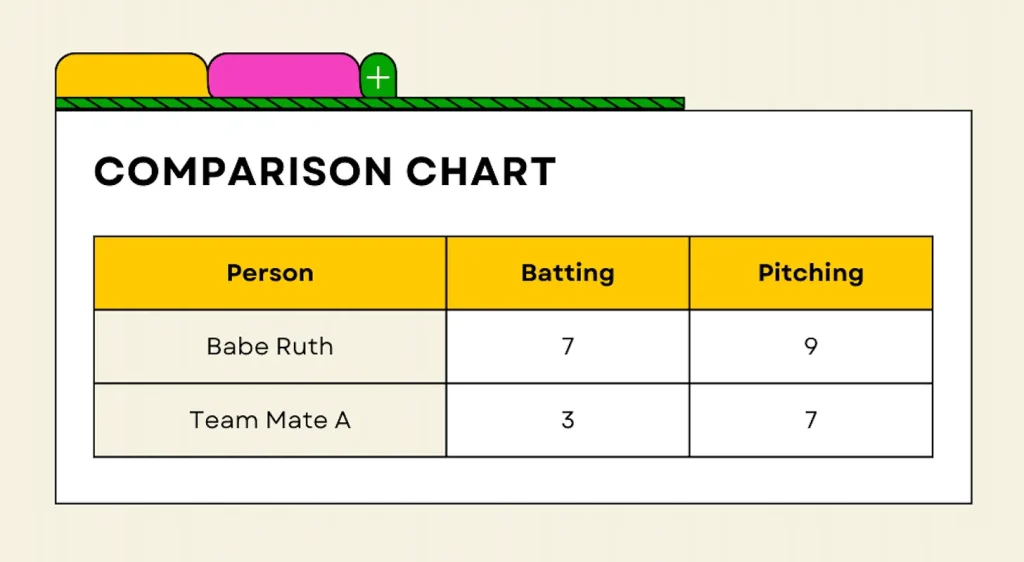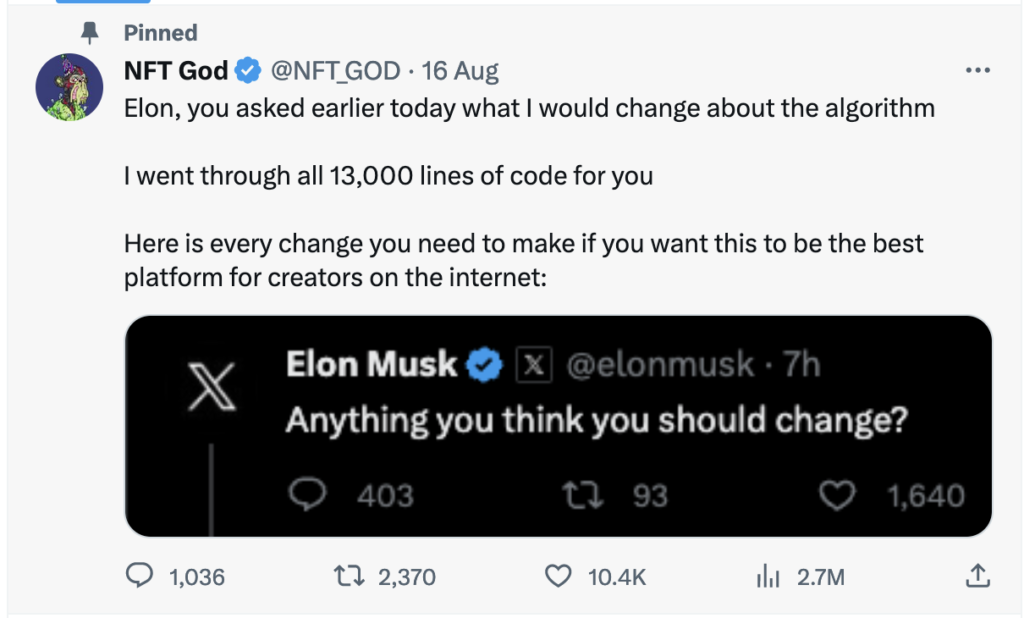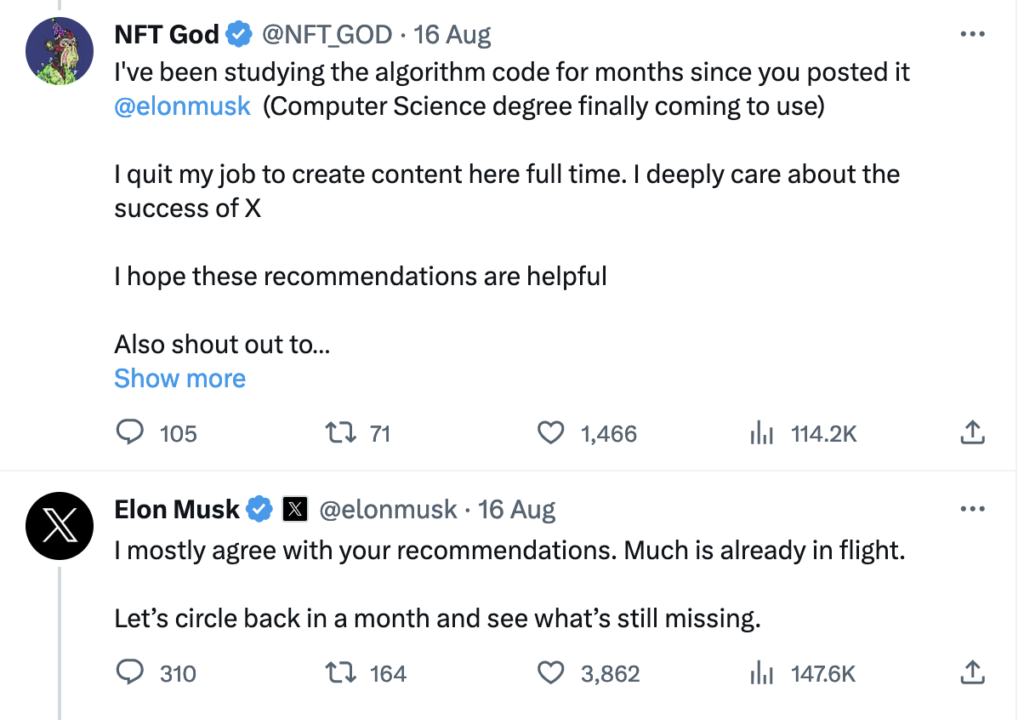The year is 1918.
You are a key baseball pitcher in the team but because of World War I, your team is missing a good hitter.
Although you have been pretty good at hitting as an amateur and rookie, to switch from a pitcher to hitter would have huge costs.
First, you’re better at pitching than hitting.
Second, retraining to be a hitter will require extraordinary cognitive training as you have basically sacrificed five years of that crucial development time by being a full-time pitcher.
Should you switch?
Ditching what you have always worked on seems like a poor choice.
Or is it?
Comparative Advantage
The baseball player in question is of course the legendary baseball slugger, Babe Ruth.
Early in his career, Ruth was one of baseball’s most dominant pitchers, leading the Red Sox to back-to-back World Series titles in 1915 and 1916.
But as America entered World War I and many of Boston’s ballplayers joined military service, Red Sox suddenly find themselves in a pinch. While the team has other good pitchers, they lacked a good hitter.
Babe Ruth, of course chose to give up pitching and got on the field as a hitter. He would go on to play in 95 out of 126 games during the 1918 season and lead the league in home runs for the first of 12 times in his career.
But assuming we didn’t know history, economists will probably agree that this is the right choice.
To understand why, consider a simplified table below.

If we are able to give a score to players, we see that Babe Ruth beats his teammate in both pitching and batting.
However, as a team, the overall score would be higher if Babe Ruth chooses batting while Player A chooses pitching (7+7=14).
If Babe Ruth had insisted on focusing on his best skills, the team would have a lower overall score instead (9+3=12).
In other words, although Babe Ruth has the absolute advantage in both skills and is better at pitching than hitting, he should take up batting. This is because someone else can perform similarly in terms of pitching but no one else comes close in terms of batting.
He brings greater value to the team by become a hitter.
Similarly for Team Mate A, although he may not have the best skills in either pitching or batting, he contributes just by complementing Babe Ruth’s efforts.
As a result, everyone is made better off and the team is stronger than if everyone just focuses narrowly on the best they can do.
The fastest swimming fish is useless in a desert.
Most career advice on achieving success will inevitably tell you to either focus on your interests or your talents.
There’s nothing wrong but there’s an underlying assumption behind those advice – that your work will be of demand.
Success is different from personal satisfaction. Doing what you love will bring you satisfaction. Learning to become good at something will also bring you growth and satisfaction. But getting people to appreciate, recognize and want your work only happens when it matters to them.
The environment you are in matters. Your talents and strengths is valuable only to the extent that it is demanded. If you do find a skills-environment mismatch, it’s time to change your environment.
The Generalist Dilemma
Many generalists also share something in common with Babe Ruth – being good in more than one thing.
As a result, generalists often do not know which area to double-down on.
This is where the concept of comparative advantage can help us identify the opportunities.
How? By focusing on what is missing in the field that no one or few people can or want to do.
While what matters is rather clear cut in sports, to find out what matters in a field or industry often take some experimenting and getting feedback.
A good starting point is to find out who the star players are and what they do differently from others.
And then avoid that space.
The instinct for most of us when we hear success stories is to emulate them.
This is a mistake. It would be like Team Mate A trying to outcompete Babe Ruth in pitching.
In fact, research has found that working teams with many stars often lose in sports and business. Because instead of competing against the “competition”, the team starts to compete within itself, leading to poorer performance.
You don’t want to be copying others. That just makes you part of the competition. Instead, you want to be a complementary.
In other words, if there’s a gold rush, you want to be the one providing the shovels. If someone is already providing shovels, you want to provide food, housing, etc. You get the gist.
To standout, you want to develop your talents such that it occupies a needed void in your organisation, market or industry.
Don’t Underestimate Your Value
But what happens if you’re Team Mate A?
We often underestimate the value we can bring to the table. Especially when we think there’s someone else who can do a better job than us.
I used to make the same mistake too.
I used to think that the things I knew weren’t worth writing about because I learnt them from the web. Anyone who wants to know can always google and find out themselves without me writing about it.
What I missed is that we all have opportunity costs. All of us only have 24 hours a day, and time spent doing something means less time to do something else.
Comparative advantage shows that you still create value even if there’s is someone else who can do it better than you can.
Understanding this is crucial to good networking.
When you can provide some kind of value, you make it easier for others to help you too. Reciprocity is the golden rule in human psychology. We can’t help but to return the favor when someone is kind to us. By learning where our comparative advantage lies, we can add value to the person we want to network with.
You can easily see this happening on X(Twitter).
Here’s one I came across. The user is a programmer who goes by the moniker NFT_GOD.

By making use of his computing skills and solving Elon Musk’s problem, he managed to network with Elon Musk and managed to grow his X account.

Did Elon Musk not know other programmers? Was NFT_GOD the best programmer around?
Being available when needed is sometimes more important than your absolute talent.
Never underestimate your comparative advantage.




